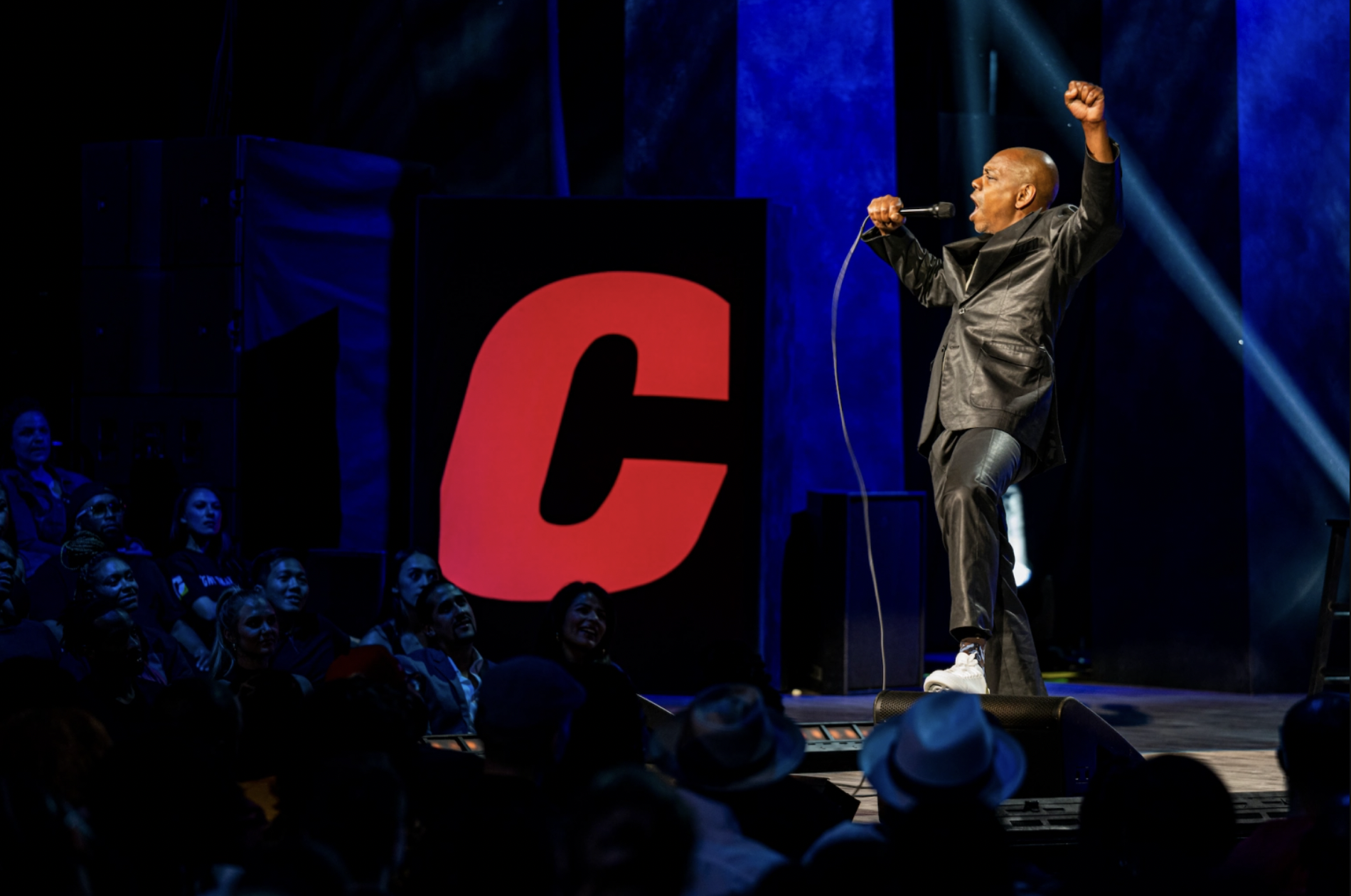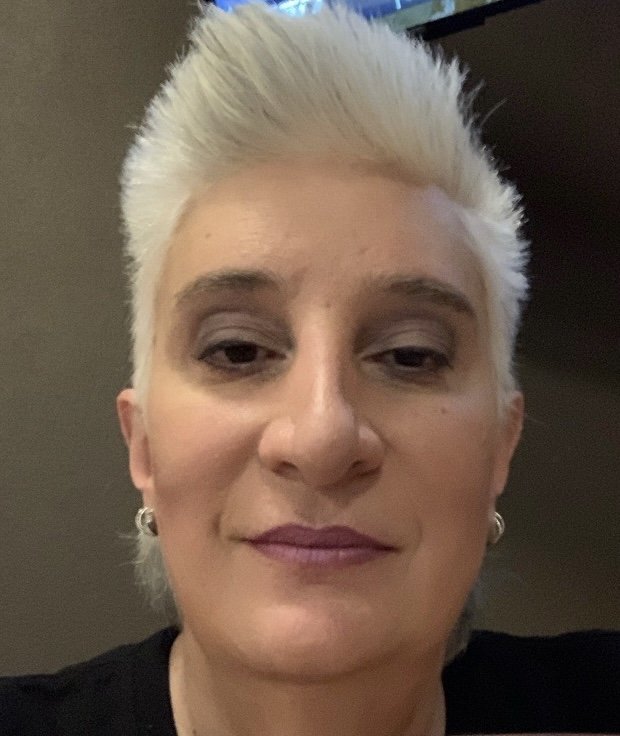
In the wake of a transgender uproar over Dave Chappelle’s Netflix special “The Closer,” I was charged by Michael Smerconish to provide my thoughts on this controversial offering. I was asked to provide my own thoughts on the special because I have lived the past twenty-four years of my life as a woman and underwent full genital surgery, including breast augmentation, in March 1999. So, I signed into Netflix with trepidation, found the special in question, took a deep breath, and clicked play. I was prepared to feel belittled, worthless, and freakish like I had often felt in the past.
Much to my delight, I found the special to be nowhere near as outrageously offensive as the media coverage and criticism painted it to be. When the credits started rolling, I simply felt that I was exposed to seventy-two minutes of excellent stand-up comedy where many groups had fun poked at them.
Initially, I viewed the program alone and did my best to put aside all prior assumptions of Chappelle, his special, and the criticism surrounding him. When I emerged from my office after watching “The Closer,” I discussed my feelings with my daughter. She is twenty-nine years old, and like many in her generation, is often more offended by social slights than older generations like mine. We often get into heated debates about social issues where I, admittedly, often take the “suck it up” position and she takes a more sympathetic stance. Since I did not find Chappelle to be transphobic, and quite enjoyed the comedy, I really needed her opinion.
During our discussion on the special, she reminded me of my white privilege and suggested that it was the reason I wasn’t offended. I always admit white privilege is a reality, but speaking from personal experience, that privilege did not provide any significant advantage when I was newly transitioning and trying to survive in a trans-sensitive society of the late 1990s. The point is that carte blanche application of white privilege is not realistic. Still, I was hoping that my daughter would watch the special and provide her thoughts.
The following morning while on the phone with my ex-wife (who is still my best friend), I was surprised to hear hearty laughter emanating from the living room. My daughter was watching Chappelle deliver his humor as I had done the previous evening. I joined her and we viewed together stopping the replay to discuss various aspects and comments.
To my surprise, she agreed that she did not feel that Dave Chappelle is transphobic. Ironically enough, he continuously refers to himself as “transphobic,” but he does so with subtle sarcasm as he regales the audience with stories of trans interaction. Through this nuanced manner of self-deprecation, he brings anti-trans issues such as North Carolina’s archaic bathroom laws to the fore – shining a light on the ridiculous nature of these anti-trans statutes.
My daughter and I both chuckled when Chappelle made the point that minority oppression experienced by the LGTBQ+ is minimal compared to that which African Americans have suffered for hundreds of years. We were both struck that this supposedly transphobic man was pointing out the obvious and often overlooked fact that we all have more in common than we realize. He is directly speaking against the idea of comparative suffering: that one group’s oppression should be valued or protected more than another’s. These comments gave us the impression that he is indeed an ally.
I can understand that there are many aspects of Chappelle’s special that, when lacking context, might offend. The delivery through the lens of an African American comedian, for instance, can be jarring for some since he is telling jokes in the verbiage that is culturally consistent among black comics. When Chappelle referred to women as “bitches” or black people using the n-word, those terms are grounded in a history of black comedy that is “real,” and ultimately, not politically correct. If individuals do not agree with Chappelle’s verbiage, they have the right to not watch him, but they do not have the right to not listen to this style of comedy.
Personally, I quite enjoyed Chappelle’s crass language. It is the job of a comedian who provides such deft cultural commentary to ask uncomfortable questions through a comedic lens. Chappelle is a master at such commentary, and his language is a tool to achieve such goals. In fact, I came away feeling that if Dave Chappelle referred to me as “bitch” I would probably feel complimented since it applies to all women – even trans women like myself. In its own politically incorrect way, it’s a form of equality.
And then there is the story of Daphne Dorman, a trans-woman who was friends with Chappelle that died by suicide years earlier. Chappelle spoke of his relationship with Dorman and shared the story of asking them to be his opening act when he performed stand-up in San Francisco. Chappelle recounts how Dorman bombed their performance but comes back to sit in the front row to watch Chappelle’s set, interacting with the audience and other comedians backstage.
For example, when an audience member shouted at Dorman if “the carpet matched the drapes,” they responded by saying that they didn’t have carpets, but “hardwood floors” – an amazing example of how humor can be used to bridge differences.
But the Dorman story takes a tragic turn when Chappelle discusses the events that led to Dorman’s suicide. Chappelle recounts how he released his previous special Sticks and Stones in 2019, and the LGBTQ+ community – specifically the transgender community – took to social media to air their criticism of Chappelle and label him as a transphobic comedian who should be canceled. In the face of this onslaught, Dorman took to Twitter to defend Chappelle for which she was “dragged all over Twitter” by other LGBTQ+ commentators.
Weeks later, Dorman took her own life. “I don’t know what was going on in her life, but I bet dragging her didn’t help,” Chappelle tells the crowd. “And I don’t know what the trans community did for her, but I don’t care because I feel like she wasn’t their tribe but was mine. She was a comedian in her soul.”
As he recounts the story of his friend Daphne, I could see tears well in my daughter’s eyes. She understands that I identify with people like Daphne. As a person who self-identifies as “The Forrest Gump of Trans Women,” I have done my best to push the boundaries in my quest to assimilate with the greater society. I attempt to lead by creating and running businesses and founding a women’s motorcycle riding group. I never shrink from the spotlight as a performing musician, public speaker, and hockey player. For me, participation is the essence of life itself. In doing so, I have earned the respect and friendship of people from all demographics. In fact, I am writing a book with the working title “Ten Minutes and A Beer” as I feel I can find common ground with almost anyone given ten minutes and a beverage.
This approach is respected by many in the trans community who are of similar direction, but as with most groups, the trans community is not a monolith. Many view this behavior as fraternizing with the enemy and a betrayal of our cause. It’s really a matter of perspective.
Reflecting on Dave Chappelle’s special makes me think of what Rocky said to his son in the movie “Balboa,” “It’s not how hard you can punch, but how well you can take a punch.” Minorities get punched regularly, but if we all start throwing punches it will ultimately come down to biggest puncher winning and minorities will always lose. If, however, we have the fortitude to take the punch, be patient and learn the language of our opponent, then we just may be able to come to an understanding and gain mutual respect.
This is exactly what Daphne did on the night that she opened for Dave Chappelle. Imagine her courage. She took the punch, maintained her composure, and then proceeded to “kill” backstage afterward. The time she spent making people laugh post-performance probably advanced the trans cause more than all the “protest punching” that she could have mustered. At least this has been my experience – and most trans women seem to hate me for it.
I have found that giving people the benefit of the doubt – and a mulligan or two – will often yield positive results. Clearly, Daphne earned Chappelle’s respect and earned respect is everlasting. Minorities often demand respect from across the room, but even if given it’s never guaranteed to be long lasting. It’s only when you meet in the middle of the room, look into the eyes of your critic, and communicate logically and reasonably (and sometimes with humor), that there may be the potential to change a preconception. It’s sometimes a dirty business, and not for the faint of heart, but brave souls like Daphne make the difference.
As I consider whether the trans community is better or worse off because of the Dave Chappelle special, I have to say I feel we are better off. Laughter is healing. Laughter is bridge-building. Seeing an audience engage on these subjects is like seeing a door opening to more discussion, and hence, the possibility for enlightenment. Furthermore, if we can learn to laugh at ourselves then others can learn to laugh with us.
I do not feel that I am disadvantaged or less able to win over skeptics because of Chappelle’s comedy, but I do agree that, as Daphne said, “that I am having a human experience” and it is true that “it takes one to know one.” Chappelle’s special, however crude, boiled down identify politics to the idea that we are all having a human experience – whether we are gay or straight, black or white. When I gave him the chance, he deftly opened my eyes to this basic truth.

Monica C. Miatello
Born Christopher John Miatello in 1963, Monica underwent gender reassignment surgery in 1999. She is a graduate of the University of Toronto (1986) and is a registered pharmacist in Ontario, Canada. She currently specializes in producing custom compounded prescriptions from her pharmacy, Ultimate Care Compounding, located in London, Ontario.
She is the father of two daughters, 27 and 29. She is a motorcycle enthusiast, plays the drums in a semi-professional band, and enjoys playing ice hockey and golf. She is an avid NFL, NHL and political talk radio fan.






